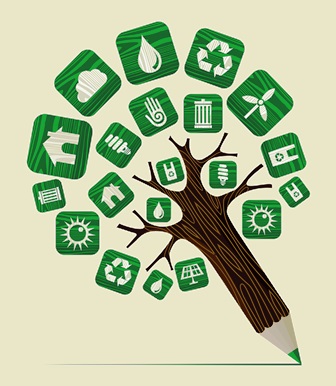
Education for sustainable development (ESD) is increasingly included in the education policies and frameworks of UNECE member States, and hundreds of initiatives have been launched in recent years to integrate ESD into formal, non-formal and informal education, moving from policy to practice. However, a lot remains to be done to achieve sustainable development through education in the region.
These are the main conclusions of the report summarizing progress in the implementation of the UNECE Strategy for Education for Sustainable Development over the past ten years presented today at the Environment for Europe Ministerial Conference in Batumi, Georgia.
The report, based on reports received from 38 UNECE member States, underscores a number of accomplishments:
- ESD is now reflected in national education policy documents by over 90 per cent of reporting member States.
- 89 per cent of reporting member States consider that ESD is now part of their country’s sustainable development policies and planning.
- 84 per cent of reporting member States consider that ESD has been included in national curriculum frameworks, with most efforts targeting the primary, lower and upper secondary levels.
- Close to 90 per cent of States report efforts to address ESD in educators’ initial and in-service training.
- Member States have moved beyond discussions of what constitutes a “green economy” to concerted efforts to retool technical and vocational education and training to support sustainability.
Examples of good practices provided in the report show how much has happened in the region during the first decade of Strategy’s implementation. Some highlights of these case studies include:
- In Estonia, since 2002, sustainable development has been incorporated as a cross-curricular objective in the national curriculum, and during 2013–2015 more than 600 educators were trained in ESD.
- In Germany, over 2,000 projects were recognized for their good practice on ESD; ESD has been reflected in the National Sustainability Strategy; and 13 of the 16 German federal states formulated their own action plans for the United Nations Decade for Education for Sustainable Development.
- The Experiential Learning and Education for Nature Awareness project, led by the Bavarian Academy for Nature Conservation and Landscape Management in Georgia, Romania and Hungary, provided training to about 1,000 teachers on the use of surrounding biodiversity and real-life experiences with living animals in the classroom.
- Switzerland established a permanent supporting institution on ESD on the federal level to promote and disseminate ESD across the country.
- Online platforms supporting ESD created in the Netherlands and Canada are successfully contributing to the advancement of ESD in Canadian classrooms and connect more than 600 organizations in the Netherlands.
- In 2014 the Mediterranean Strategy on ESD was endorsed in Athens by environment ministers of the Union for the Mediterranean as a direct outcome of the UNECE Strategy for ESD.
- The University Educators for Sustainable Development (UE4SD) project, funded by the European Commission, continues to reorient teaching and learning in higher education by improving support for university educators in 33 European countries to develop professional competences in ESD.
- Whole-school approaches have been adopted in kindergartens in Hungary — with Green Kindergartens making up about 20 per cent of all kindergartens in the country — helping to scale-up the ESD work of institutions.
- In Finland all dimensions of sustainable development have been integrated into the learning outcomes (knowledge, competences and skills) of the national qualification requirements in technical and vocational education and training.
The findings of this report have been taken into consideration in the Framework for the future implementation of the UNECE Strategy for ESD and the Batumi Ministerial Statement on Education for Sustainable Development to be adopted by Ministers of education and the environment on 8 June 2016. This will contribute to further advancing ESD in member States as a contribution to the UNESCO Global Action Programme on Education for Sustainable Development, as well as the 2030 Agenda for Sustainable Development.
The report is available at http://www.unece.org/env/esd.html
Note to editors
The UNECE Strategy for ESD was adopted in 2005, and served as a framework for achieving a set of objectives aimed at implementing ESD in the education systems of the 56 member States in Europe, North America and Asia represented in UNECE. The overall objective of the UNECE Strategy is to equip people with knowledge of and skills in sustainable development in order to make them more competent, and increase their opportunities for leading healthy and productive lifestyles in harmony with nature and with concern for social values, equality, and cultural diversity.
The report reviews the data collected through national implementation reports submitted by member States at the end of the third phase of the Strategy (2011-2015), as well as other supplemental information provided by member States to the secretariat including good practice case studies on ESD initiatives, documenting their lessons learned from 2005 to 2014. It also reflects on progress as compared to the first and second evaluation reports for 2007 and 2010. Consideration is also given to reporting to UNESCO by UNESCO member States in the ECE region as part of the 2014 final monitoring and evaluation report for the Decade of ESD.

